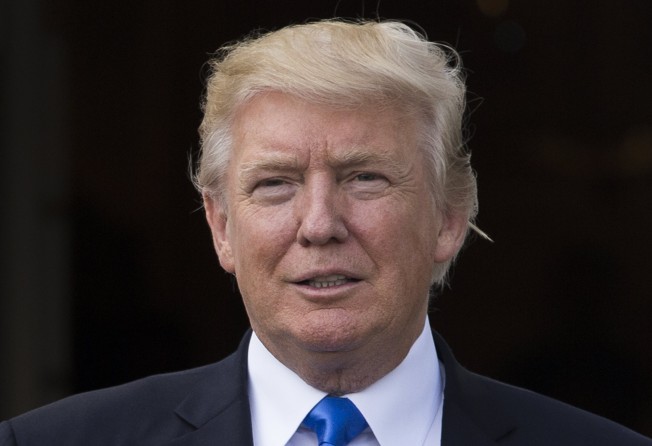US turns screws on China over North Korea with Taiwan arms deal
President Donald Trump’s plan to sell US$1.4 billion worth of weapons to Taipei is meant to put pressure on Beijing, observers say

Washington has ratcheted up the pressure on Beijing amid growing frustration over its inaction on North Korea, upping the ante on Taiwan just days ahead of a summit between the Chinese and US leaders.
In what observers say is a clear sign of how far the Trump administration will go to extract concessions from Beijing to help bring Pyongyang into line, the US State Department on Thursday approved US$1.4 billion of arms sales to Taiwan, the first under President Donald Trump.
Analysts said the planned arms sales and other moves targeting China would send a message to Beijing – just a week before President Xi Jinping meets Trump on the sidelines of the G20 summit in Hamburg, Germany.
The moves – including a bill that would allow the US navy to make port calls to Taiwan and the blacklisting of a small Chinese bank accused of illicit dealings with North Korea – infuriated Beijing, which said Washington was interfering with its internal affairs.
“These actions – sanctions against Chinese companies, especially arms sales to Taiwan – will undermine the mutual confidence of the two sides and runs counter to the spirit of the Mar-a-Lago summit [between Trump and Xi in April],” Chinese ambassador to Washington Cui Tiankai said. “We have expressed firm opposition to the US and we will reserve our right to take further action,” he said.
Defence ministry spokesman Ren Zhiqiang said China firmly opposed the actions and reiterated that Taiwan remained “the most important, most sensitive core issue in China-US relations”.
Analysts said Trump appeared to be using Taiwan as leverage against Beijing amid heightened tensions over North Korea’s nuclear weapons programme.
“This constitutes a clear warning that the Trump administration requires Beijing to deliver what has been agreed on North Korea, in return for easing pressure on China on the economic front and on Taiwan,” said Steve Tsang, director of the SOAS China Institute in London.
Alessandro Bruno, a defence industry analyst at consulting group Lombardi, said: “Trump is playing a little bit of chess. This is definitely a strategy to put pressure on China so that Trump can extract some concessions out of China ahead of the G20 meeting.”
But US state department spokeswoman Heather Nauert said the moves would not affect the long-standing “one China” policy, which Beijing considers the basis of bilateral ties.
Trump threw relations between the world’s top two economies into disarray after he was elected by accepting a congratulatory call in December from independence-leaning Taiwanese President Tsai Ing-wen. But in recent weeks, Trump and his top officials have become frustrated with Beijing’s refusal to impose tougher sanctions on Pyongyang, despite its repeated provocations.
The arms package needs approval from Congress within 30 days. It comprises seven items, including technical support for early warning radar, anti-radiation missiles, torpedoes and components for SM-2 missiles, the Associated Press reported.
It came a day after the US Senate Armed Services Committee approved a bill that would allow regular stops by US naval vessels to Taiwan’s ports and permits US Pacific Command to receive ports of call by Taiwan.
Huang Jing, of the National University of Singapore, said: “The US moves show the ‘adults’ in the Trump administration, such as Rex Tillerson and Jim Mattis, are trying to manage the president and correct Trump’s mistake of being nice to China.”
Beijing sees Taiwan as a breakaway province and tries to deter countries from having formal ties with the island. US defence ties are a particularly sensitive issue.
Additional reporting by Robert Delaney